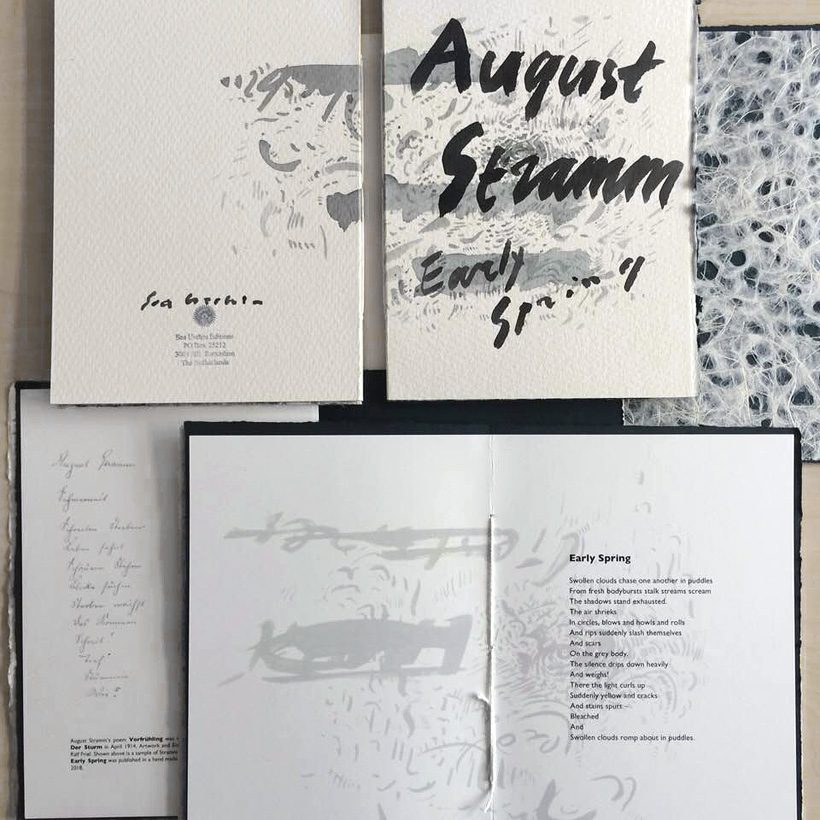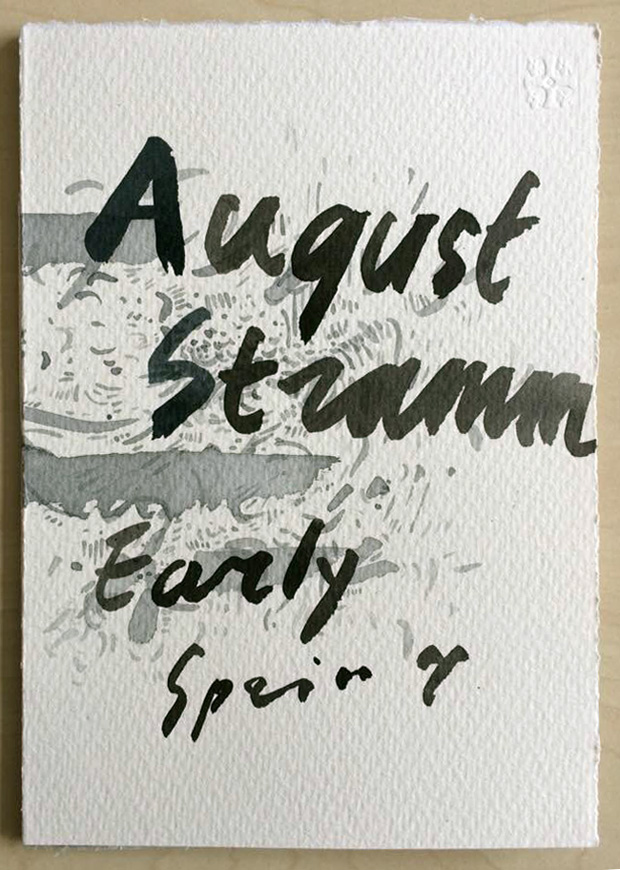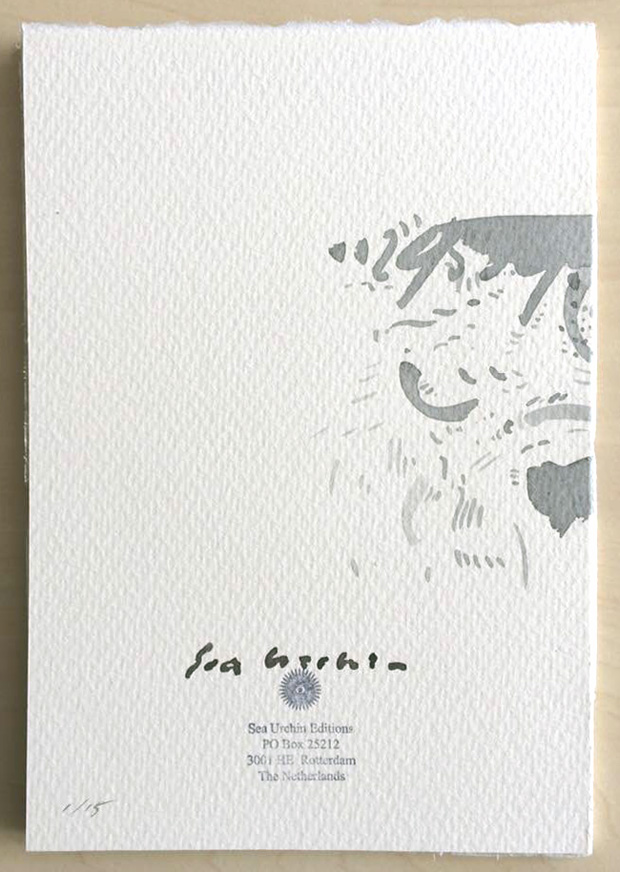
Author: August Stramm
Publisher: Sea Urchin
Year: 2018
Size: 210 x 150 x 4 mm
Language: English
4 pages laser printed on 200 gr paper, double flyleaf
Binding: white pamphlet stitch
Cover: watercolour on 300 gr Saunders Waterford
English Translation: Ben Schot with thanks to Ralf Friel
Artwork & design: Ben Schot
Postage & packing not included
August Stramm (1874-1915) was born in Münster and educated in Aachen, Germany. After he had graduated from grammar school, Stramm held various positions in the German Postdienst and regularly travelled between Germany and the USA after having been promoted to a position in the Seepostdienst in 1897. Stramm married journalist Else Krafft in 1902 and moved to Berlin three years later. In the German capital Stramm developed his groundbreaking approach of poetry, which in 1912 won him the attention of Herwarth Walden, publisher of the expressionist magazine ‘Der Sturm’. They soon became close friends. Walden understood what Stramm’s loud, and violently deconstructionist poetry was about and regularly included it in his controversial avant-garde magazine. During WWI Stramm first served as an officer on the West front, which earned him the Iron Cross, and then on the East Front, where he was killed at the age of 41 in the battle of the Dniepr-Bug Canal.
 August Stramm is now mainly remembered for the poems that he wrote during WWI and were published posthumously as ‘Tropfblut’ by Walden in 1919. Stramm’s poem ‘Vorfrühling’, however, was written in 1913-14 and published in Der Sturm in April 1914, on the eve of the Great War. Inspired by Nietzsche, the Futurists and his friendship with Walden, Stramm’s ‘Vorfrühling’ is a noisy, violent and syntactically deconstructed poem, which captures the wild and unpredictable weather in early spring. In loosely constructed sentences, larded with alliterations, neologisms and exclamation marks, Stramm sketches desolate skies, slashing rains, howling winds and clouds chasing one another while bursting open like cadavers. As such the poem does not so much hold a promise of spring but rather heralds the approaching destruction of World War I.
August Stramm is now mainly remembered for the poems that he wrote during WWI and were published posthumously as ‘Tropfblut’ by Walden in 1919. Stramm’s poem ‘Vorfrühling’, however, was written in 1913-14 and published in Der Sturm in April 1914, on the eve of the Great War. Inspired by Nietzsche, the Futurists and his friendship with Walden, Stramm’s ‘Vorfrühling’ is a noisy, violent and syntactically deconstructed poem, which captures the wild and unpredictable weather in early spring. In loosely constructed sentences, larded with alliterations, neologisms and exclamation marks, Stramm sketches desolate skies, slashing rains, howling winds and clouds chasing one another while bursting open like cadavers. As such the poem does not so much hold a promise of spring but rather heralds the approaching destruction of World War I.
‘Early Spring’ has been published in a limited edition of 15 hand made copies. English translation: Ben Schot, with thanks to Ralf Friel.


